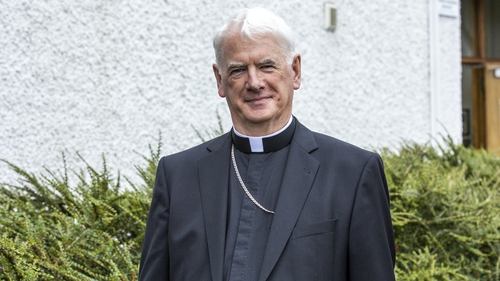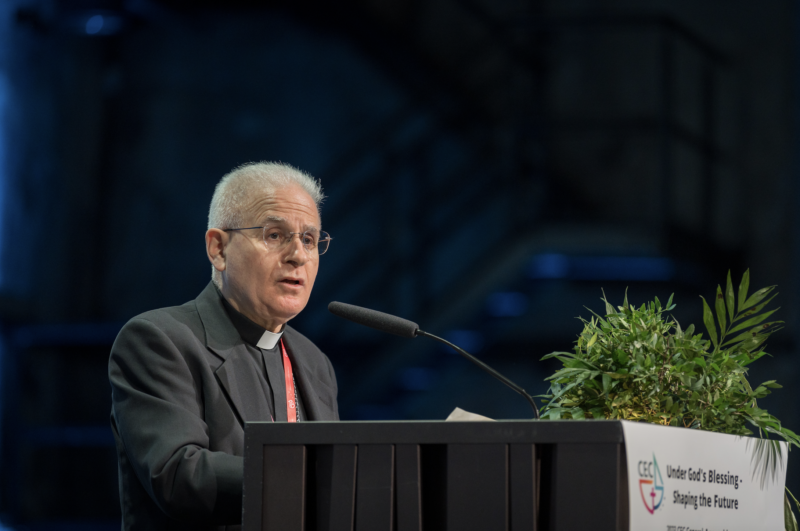03/11/2023
Mgr. Crociata’ speech on “A 60 anni dalla morte di Robert Schuman e a 20 anni dalla Ecclesia in Europa” [IT]
The Catholic Church in the European Union
Commission of the Bishops’ Conferences of the European Union

The Apostolic Nuncio to the European Union, H.E. Mgr. Noël Treanor, participated in the St. Michael Annual Reception held in Berlin on Monday 4 September 2023 by the German Bishop Conference (DBK) and its liaison office in Berlin. The event featured the participation of the German Chancellor Olaf Scholz. Full video | Read statements In his speech, the Apostolic Nuncio promoted the “art of compromise” … Continue reading

In the Article 17 TFEU Dialogue Seminar on the 30th Anniversary of the EU Single Market, held at the European Parliament on Tuesday 27 June 2023, COMECE recalled that “more inclusive and fair economic models are needed for the benefit of all and essential to ensure that the EU project remains vibrant”. Watch the video of the event The Commission of the Bishops’ Conferences of … Continue reading

The President of COMECE, H.E. Mgr. Mariano Crociata, greeted the participants of the 2023 General Assembly of the Conference of European Churches in Tallinn (Estonia) on Sunday, 18 June 2023. Crociata: “As the tragic war against Ukraine rages on, common understandings and projects are necessary to overcome conflict and create ways of reconciliation and peace”. Speech [EN – IT] Mgr. Mariano Crociata was invited to … Continue reading

The President of COMECE, H.E. Mgr. Mariano Crociata, participated on 9-10 June 2023 in a high-level meeting held in Rome by the European People’s Party (EPP). Members of the European Parliament gathered in Rome for this event and exchanged on the future of Europe and the role of Christianity. Mgr. Crociata offered a reflection on the role that Christian values should play in the European … Continue reading